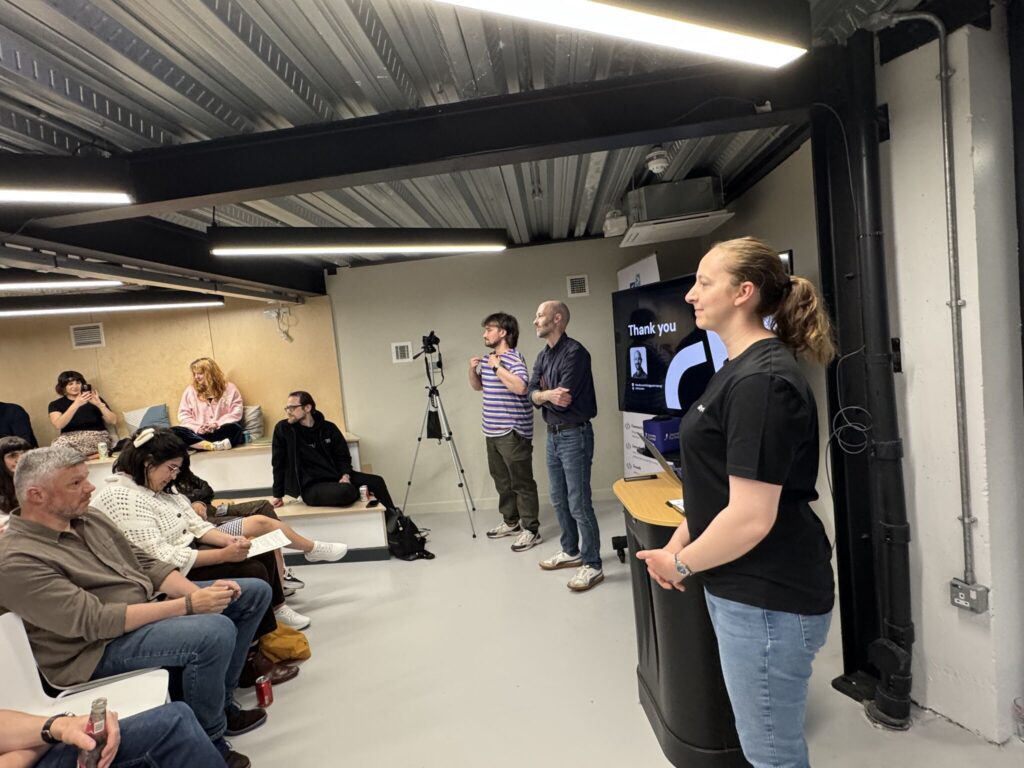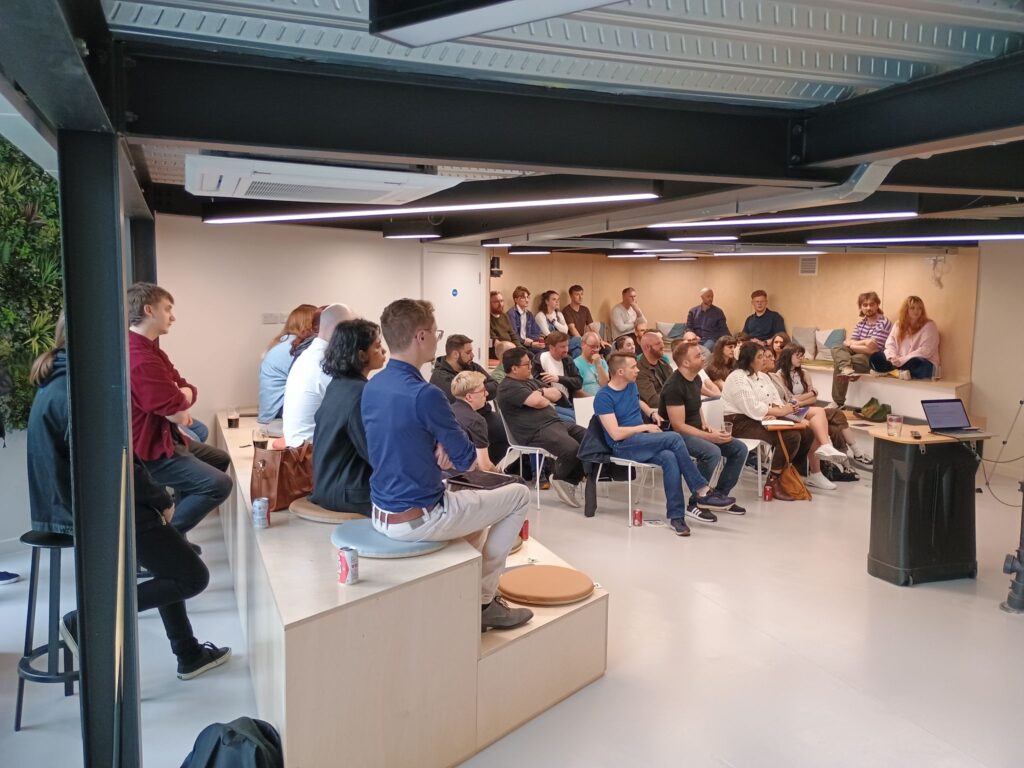- January 30, 2026



Last week in Leeds (Thursday 5th June 2025), I had the privilege of speaking at the second in-person TechSEO North event. And I don’t use the word “privilege” lightly. We packed out the room. The talks were solid, the crowd was sharp, and the energy reminded me why I still enjoy being part of this community.
This wasn’t a night of polished agency slides or sponsor-heavy panel fluff. It was a room full of people who live and breathe technical SEO. People who still get a kick out of log files, edge cases, and fixing things no one else even notices. No theatre, no buzzwords. Just proper conversations.
This one had been brewing for a while. I’ve been watching a slow drift across the industry. More SEOs leaning on ChatGPT to write audits and tickets. More juniors being taught how to prompt, not how to think. A growing reliance on tools instead of instincts.
So I built Before the Prompt as a bit of a reset. Not anti-AI, not nostalgic. Just a reminder that technical SEO is more than outputs. It’s about pattern recognition. That moment where something feels off even if the report looks fine. It’s about being able to trace an issue back to the right cause, not just describe the symptom.
I walked through how we got here. From the early days when we used search operators and built checklists, to the first wave of AI hype, and how quickly the default became “ask the tool” instead of “test it yourself.” I talked about the real risk, which isn’t bad answers ; it’s losing your grip on how to do the work without them.
We’re already seeing it. SEO tickets that read like AI blur. Audits that don’t hold up under scrutiny. Clients can feel it. Devs push back because the logic’s missing. Trust breaks. And all of it avoidable with just a bit more structure and a bit less autopilot.
Here’s the full summary of what I talked about, the link to the slides is at the end of the post:
TechSEO North, Leeds | 5 June 2025
1. The Golden Era of Freestyle SEO
There was a time when instinct led the work. We used search operators and custom crawls. Tickets were full of context, not clichés. Grammar gave away the author. You could tell who wrote it just by the tone.
2. The Rise of AI: From Grammarly to ChatGPT
It started with Grammarly cleaning up grammar. Then came the real hit. 2022 into 2023 saw SEOs turning to ChatGPT+ to write faster, smoother, and with less mental load. For a while, it felt like a win.
3. The Comedown: AI’s Limitations
The cracks showed quickly. Hallucinated answers. Inaccurate data. Downtime. Outputs started to feel detached from the work. PSI copy-paste jobs. Screaming Frog descriptions dropped in with no prioritisation or insight.
4. The Real Risk: Losing Critical Thinking
It’s not about whether AI gets it wrong. It’s about SEOs not knowing how to tell. We’re losing habits that took years to build:
Some SEOs haven’t updated their own processes in years.
5. Training the Next Generation
The biggest risk? Juniors being trained to prompt, not think. Copy/paste culture leads to shallow outputs and deeper client issues. Without structure and proper coaching, they miss the nuance. They don’t spot what’s really going wrong. And they get pushback.
We can spot a bad ChatGPT output. Can a junior?
6. Where Technical SEO Is Heading
AI will keep playing a role. But it should support thinking, not replace it. The real value is moving to three key areas:
a. Edge SEO Going Mainstream
Using NodeJS middleware, or tools like Ahrefs’ Patches, to modify site behaviour without dev time.
b. SEO MCP Servers (Model Context Protocol)
Unifying API data from GSC, AHREFs, BigQuery and others into one interface. Using conversational querying to surface insights and generate reports. Creating a single source of truth.
c. Vibe-Coding Tools and Scripts
Custom scripts built around actual SEO problems. Lightweight audit tools, log processors, migration support. Not SaaS clones. Not AI fluff. Just tools that work.
7. Final Message
Technical SEO isn’t dying. It’s just moving faster. Clients expect clarity, not copy. And they can tell the difference.
We need to train SEOs properly. Not prompt them into submission.
Our job is to bring context, experience, and structure. That’s the stuff AI can’t replicate.
Cleaning up after AI will be the next big demand in failed migrations.

I wasn’t the only one bringing a point of view. Jess Batin had the room completely locked in with her CRO vs SEO deep dive, not just where it clashes, but how to actually fix it. Dan McCartney got us thinking bigger than Google. TikTok, Amazon, YouTube. It’s all search now. And Ziggy Shtrosberg closed strong with a smart walkthrough of Screaming Frog’s JavaScript Snippets feature. Really useful. Really practical.
Every talk had depth. Nothing recycled. Just lived experience and sharp delivery.

There’s a lot of noise right now about AI and automation. But what people are really asking for are examples they can use straight away. Frameworks that don’t require five tools or another SaaS trial. TechSEO North nailed that balance. No fluff. Just stuff that works.
The Q&A wasn’t shallow either. People asked proper questions. And there was honesty in the room, including a few of us admitting where we’ve gone too far with shortcuts lately. That’s what keeps this thing moving.
Next stop is Sheffield. New venue, new speakers, but same vibe. If you’ve got something to say, especially if you’re willing to show the thinking behind it, pitch a talk. We want more of that.
You can find my slides here if you want to dig into Before the Prompt in more detail: https://speakerdeck.com/chrisleverseo/before-the-prompt-remember-why-you-loved-technical-seo
Thanks again to everyone who came along. Huge kudos to Nikki Halliwell for being the host of the event. It was everything I’d hoped for – honest, sharp, and full of people who still care about doing this properly.
See you at the next one.
Comments: